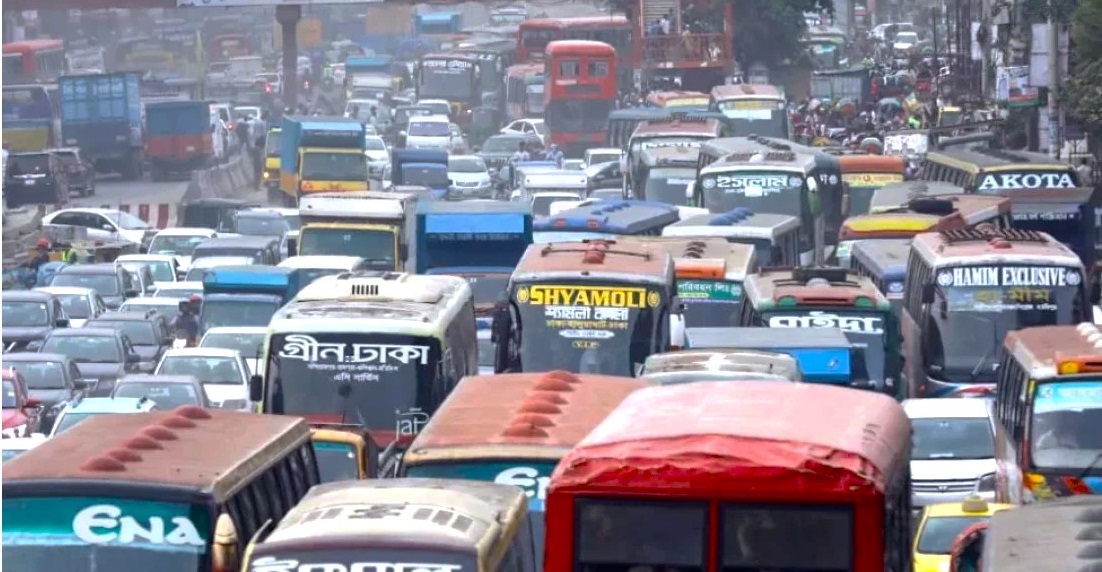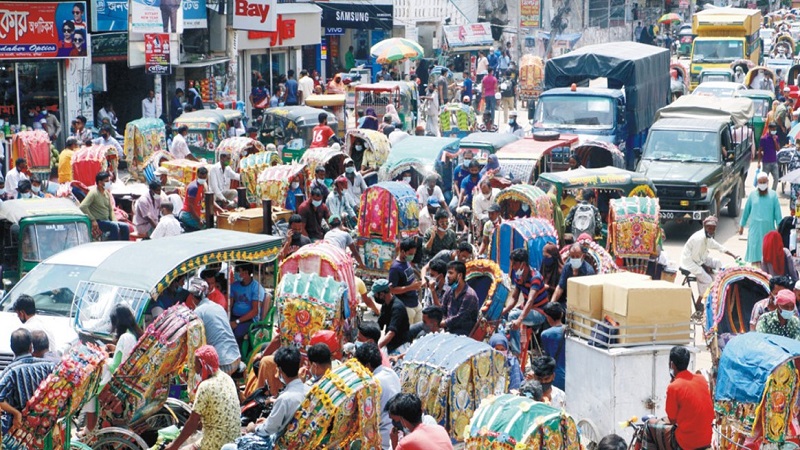The Dhaka metro rail is still an ongoing project, with the first line—MRT-6—almost complete and several others under construction. Yet, few would shy away from calling it a tremendous success already. It works, people love it, and all that's required now is to maintain the quality of service and keep up with demand.
Unless, of course, as citizens of one of the most densely populated metropolises in the world, we aspire to a better quality of life.
The metro rail network, which authorities say will be complete by 2030, will span the entire city of Dhaka. With 103 stations, the expectation is that a complete network will make the metro rail service accessible to everyone. While 103 is quite a large number, Dhaka is an incredibly populated city, and getting one to two crore—depending on where you draw the city boundaries—Dhakaites from their homes to these stations and back will remain a challenge.
If Dhaka is to become a city with reliable public transport—and it must if it wants to stop being one of the least liveable places in the world—the government and city authorities need to look at the complete picture and work on efficient ways for people to commute. Metro rail is only one part of the puzzle; rationalising bus lines and making bus services passenger-friendly has to be the next step.
Since the metro rail has been operating full time, there have been reports that bus operators are starting to lose passengers. But that doesn't necessarily have to be the case. In Dhaka, one look at the roads tells us that not enough people use public transport, as roads are inundated with a sea of private vehicles, mainly cars.
Within a functional public transport system, buses can exist parallelly with metro lines, operating cheaper, slower services with more stops. This serves the dual purpose of offering alternative modes of transportation between two destinations, as well as becoming a medium of last mile delivery for passengers, doing the job of collecting commuters from near their homes and commercial destinations and putting them on a metro rail.
By reaching into parts of the cities that the metro rail can't get to, and connecting these areas to metro stations, buses can truly democratise public transportation in this city. Implemented correctly and supplemented with human-scale pedestrian and bicycle facilities, a mass transit ecosystem that consists of buses and metro rail working in tandem could finally make private cars unnecessary in our city, reducing their numbers on the road, and eventually lead to a city that isn't famous for its traffic congestion.
In truth, none of these are novel findings, and in the past, there have been efforts to achieve progress with bus services in Dhaka. The late Dhaka North Mayor Annisul Huq envisioned a bus ecosystem where a single company would operate buses, with hundreds of active routes rationalised into just 42, organised in a handful of clusters. The initiative stymied with his death, but was revived once more under the current Dhaka South Mayor Sheikh Fazle Nur Taposh.
Trial runs were started in late 2021 under the company Dhaka Nagar Paribahan in three routes in the green cluster, all originating in Ghatarchar. The trials faced difficulties from the start, as the authorities expected private companies and entrepreneurs to join this initiative, but had to rely on the state-owned Bangladesh Road Transport Corporation (BRTC) at the last minute to provide a large portion of buses for the initial trial.
Over the next two years, however, instead of increasing service areas and implementing the plan citywide, the initiative has suffered from non-compliance by private bus owners who were partnered with the government authorities. A report published in Prothom Alo this week paints a picture of disarray for Dhaka Nagar Paribahan—with a lack of sufficient buses, a tendency of buses in service to revert to old practices of dropping off and picking up passengers wherever they want, and an overall lack of cooperation by private companies. In the report, the Dhaka South mayor, who is also the convener of the Bus Route Rationalisation Committee, blamed blockades enacted by the opposition from October until the recently held national election for the lack of activity by the authorities concerned with Dhaka Nagar Paribahan. But a report by The Financial Express in October 2023 said that the committee hadn't met since May, five months before the blockades started.
The failure of Dhaka Nagar Paribahan and the apparent success of the metro rail tells the story that in Bangladesh, public transportation is being held hostage by the private sector. State-owned services like Bangladesh Railway leave a lot to be desired as well, but nowhere is the rot of bad service and bad faith worse than in the bus sector.
The benefits that have been brought about by the metro rail is proof enough, in case we needed it, that public transportation is a utility, not a consumer product. Allowing private bus owners to run riot with this crucial service has been one of the monumental long-term failures of Dhaka's city administration in its various forms over the decades. The idea of Dhaka Nagar Paribahan, which looked to include private players in the sector in a government-endorsed reorganisation of the industry, was a good idea, but it has not worked, and much of that responsibility falls on the shoulders of private bus companies and owners.
It is now the perfect time for the government to treat this utility like a utility, and focus its attention on this sector. Using the experience it will gain from the metro rail, it needs to create city services of such quality that it drives the fleet of unfit buses off of Dhaka roads. If the government can bring discipline, affordability and, most important of all, reliability to bus services, the public will be with them. The metro rail proves that.













